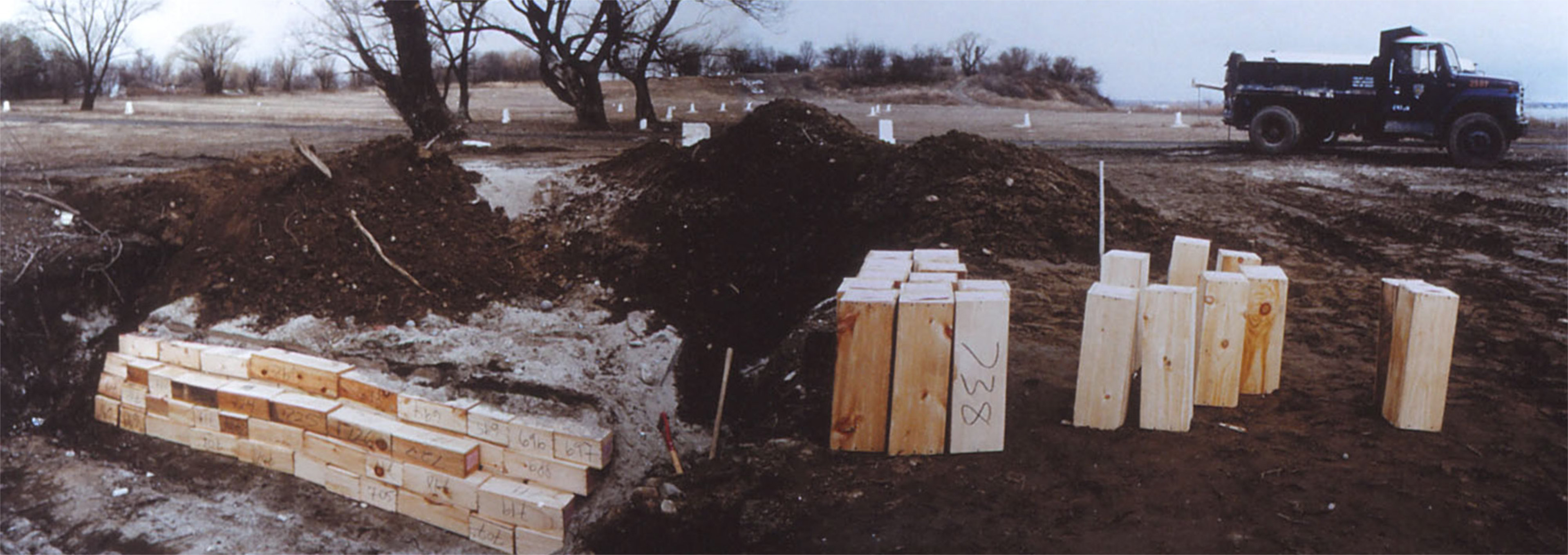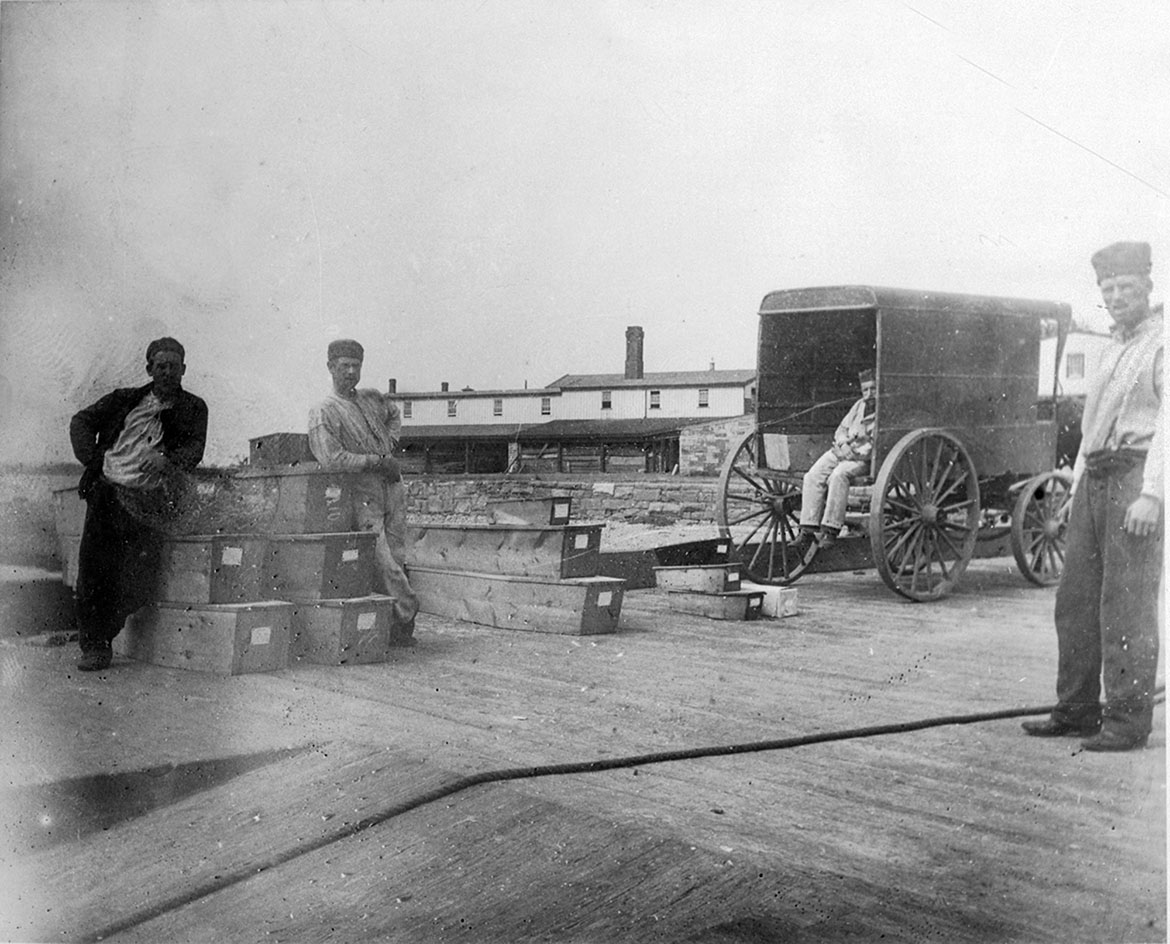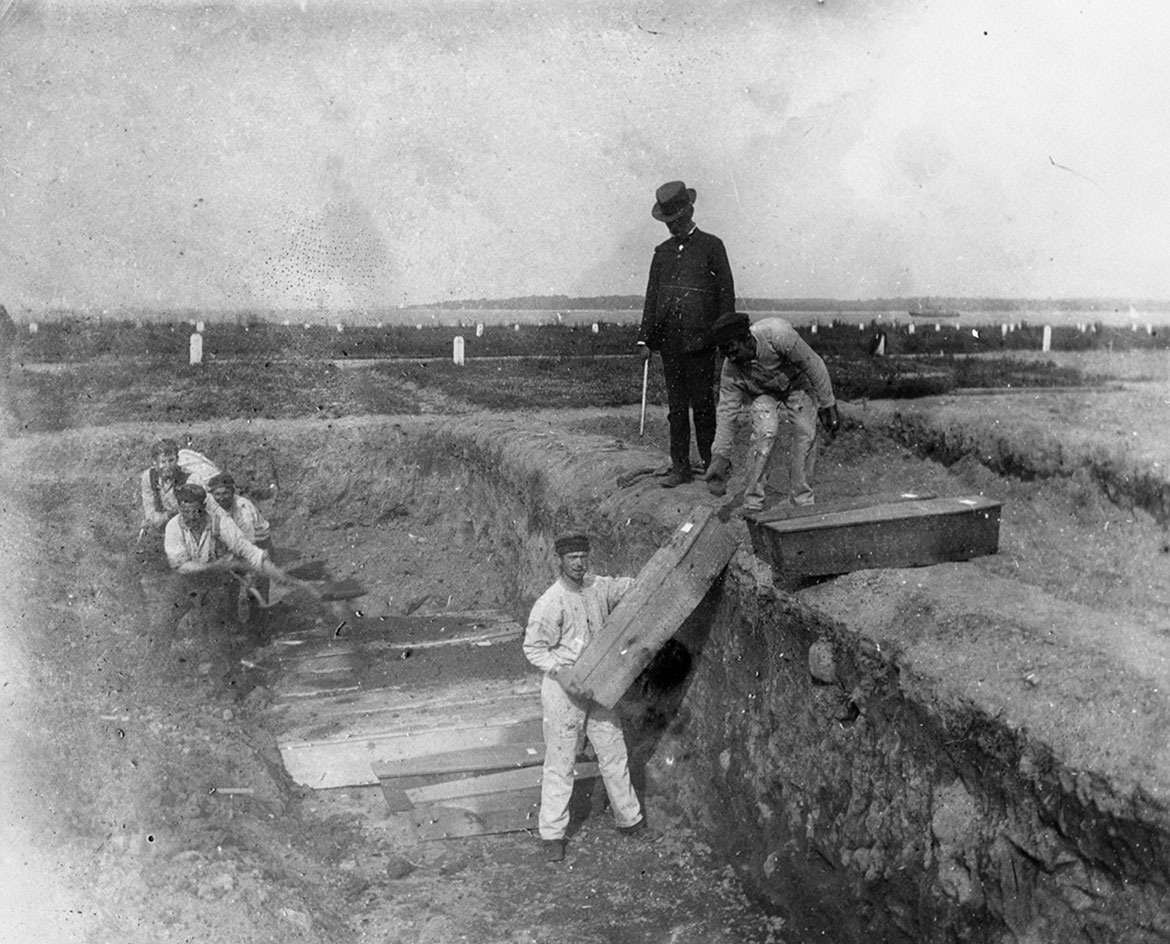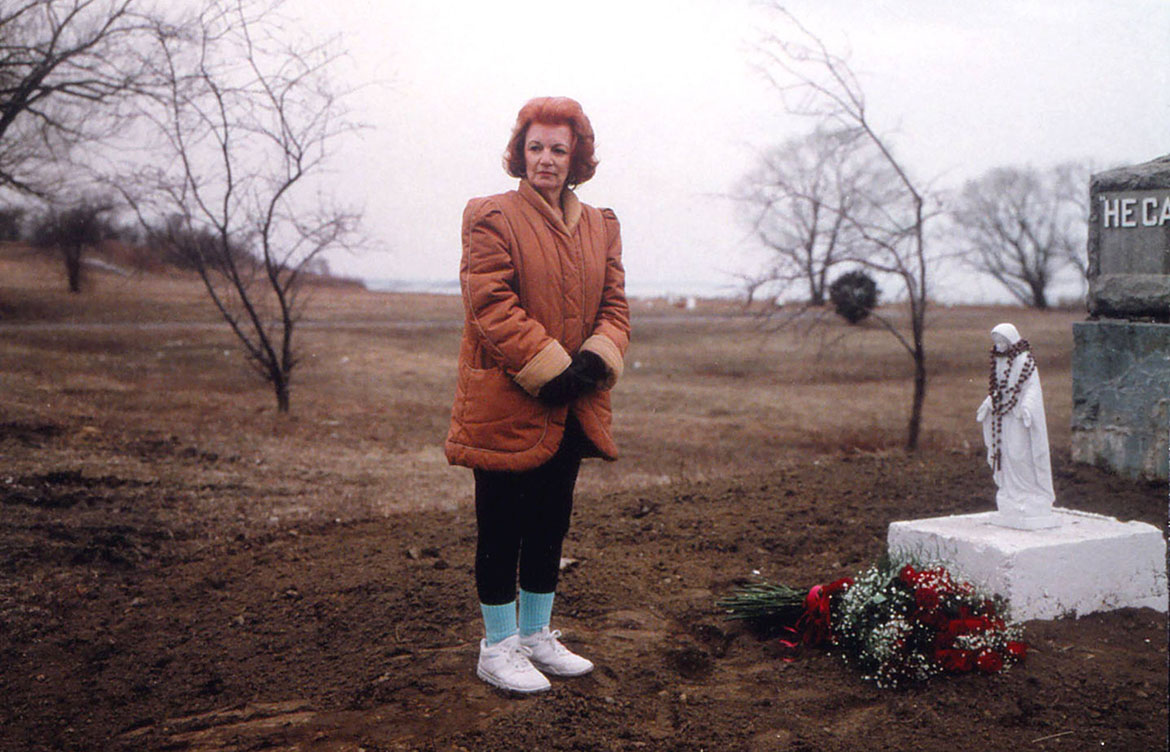In November 1991, Joel Sternfeld and Melinda Hunt began to photograph Hart Island as a hidden American
landscape. They were granted access to the island, the burials and Riker’s Island inmates over a three
year
period. In 1994, toward the end of their work to produce a book of photographs, Vicki Pavia asked to
accompany
them to the gravesite of her baby, Denise.
Twenty years later, women seeking to visit the grave of a child had to request access through an
attorney.
Cameras
were banned until 2021. To assist families in accessing information, locating a gravesite, and visitation, the Hart
Island
Project continues working with volunteer attorneys. Freedom of Information Law requests led to changes in city
policies and access for families.
In 2015, New York City settled a class action lawsuit permitting relatives like Vicky Pavia to visit
actual graves two weekends per month.
Hart Island opened to all visitors with the passage of legislation
transferring jurisdiction to the Department of Parks and Recreation
effective January 2023.



